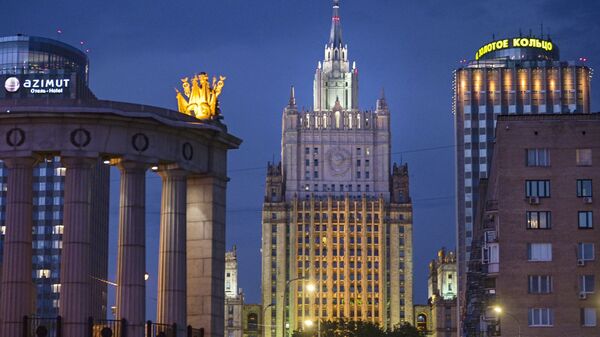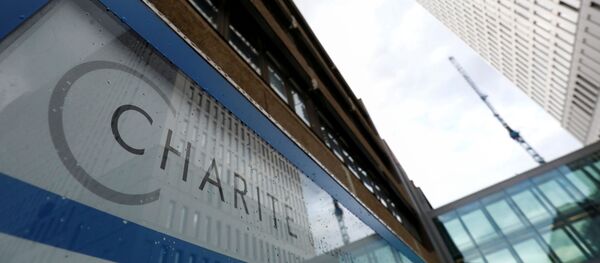The Russian Foreign Ministry stated on Wednesday that Berlin's appeal to the EU, NATO and the OPCW on the Navalny case is needed to justify pre-arranged "response measures."
"As far as we understand, the main addressees of today's statements were the EU and NATO, and for some reason, the OPCW was also mentioned. This was instead of doing what should have been done in the first place, namely, to respond to the request of the Russian Prosecutor General's Office. Once again, I want to emphasize that this request remained unanswered, on a par with two other requests sent by Russian doctors to their German colleagues," Russian Foreign Ministry spokeswoman Maria Zakharova said.
If Berlin's goal is a genuine investigation, like it is for Russia, the case should be reviewed in the legal framework as both "the political will and legal tools" are there to give it a go, according to the spokeswoman.
The behaviour of the German Justice Ministry and doctors makes it seem as if they were prohibited from communicating with the Russian colleagues around the Navalny case, the Russian Foreign Ministry added.
The ministry pointed out that doctors from the Russian city of Omsk, where Navalny was initially hospitalised after feeling unwell on a domestic Russian flight on 20 August, offered assistance in the further diagnostics in a letter sent to the German counterparts from the Berlin-based Charite hospital, where the politician was transported two days later.
"The German hospital replied by thanking them for concerns, but not requesting any concrete assistance. The Russian doctors' second letter, sent on August 27, with a request to share the data pointing to Navalny's 'intoxication' with the cholinesterase inhibitors [the German doctors' initial diagnosis] has received no reply," the ministry emphasised.
Kremlin on Navalny Case
Meanwhile, Kremlin spokesman Dmitry Peskov told reporters that a whole range of tests was conducted for Russian opposition figure Alexei Navalny in Russia before he was taken to Berlin, no toxic substances were detected.
"Before the patient was taken to Berlin, in accordance with all international standards, a whole range of tests was carried out in our country, no toxic substances were detected," Peskov said.
Russia is ready for all-round interaction with Germany to clarify the situation around Navalny, but the Kremlin notes that Berlin did not respond to the previously sent official inquiries, he said.
At the same time, answering the question of how the Kremlin will react to Berlin's statement, Peskov said: "At the moment we cannot competently respond to these statements."
"The Russian Prosecutor General's Office sent an official request to the German side, hoping that an official response will be provided," he said
"Our doctors have also officially proposed the exchange of data and have not yet received, unfortunately, a response from their German colleagues," Peskov added.
Earlier in the day, a spokesman for the German government claimed that tests performed on the Russian opposition figure showed that he had been exposed to a nerve agent from the Novichok group.
On 20 August, Russian opposition figure Alexei Navalny fell gravely ill during a domestic Russian flight. Following an emergency landing in the Siberian city of Omsk, he was taken to a local hospital and, according to an open letter published by regional doctors on Wednesday, he arrived just 17 minutes after landing.
For the next 44 hours, doctors waged an uninterrupted struggle for his life, as he went into a coma and was put on an artificial lung ventilator.
Immediately after Navalny fell ill, his spokeswoman Kira Yarmysh rushed to claim that he might have been poisoned.
Upon conducting multiple tests involving experts from different fields, Russian doctors said that no traces of poison had been found, suggesting that Navalny's condition was caused by an abrupt drop of glucose in his blood due to a metabolic imbalance.
On 26 August, the Russian medics published an open letter decrying the criticism they have faced after Navalny's transportation to the German clinic, Charite, and called the situation around the activist a "political diagnosis."



